As a tribute to the late actress, who died aged 52 on 16th April, Gustav Temple recalls an inspiring encounter with Helen McCrory in 2019, on the eve of Series 5 of Peaky Blinders.
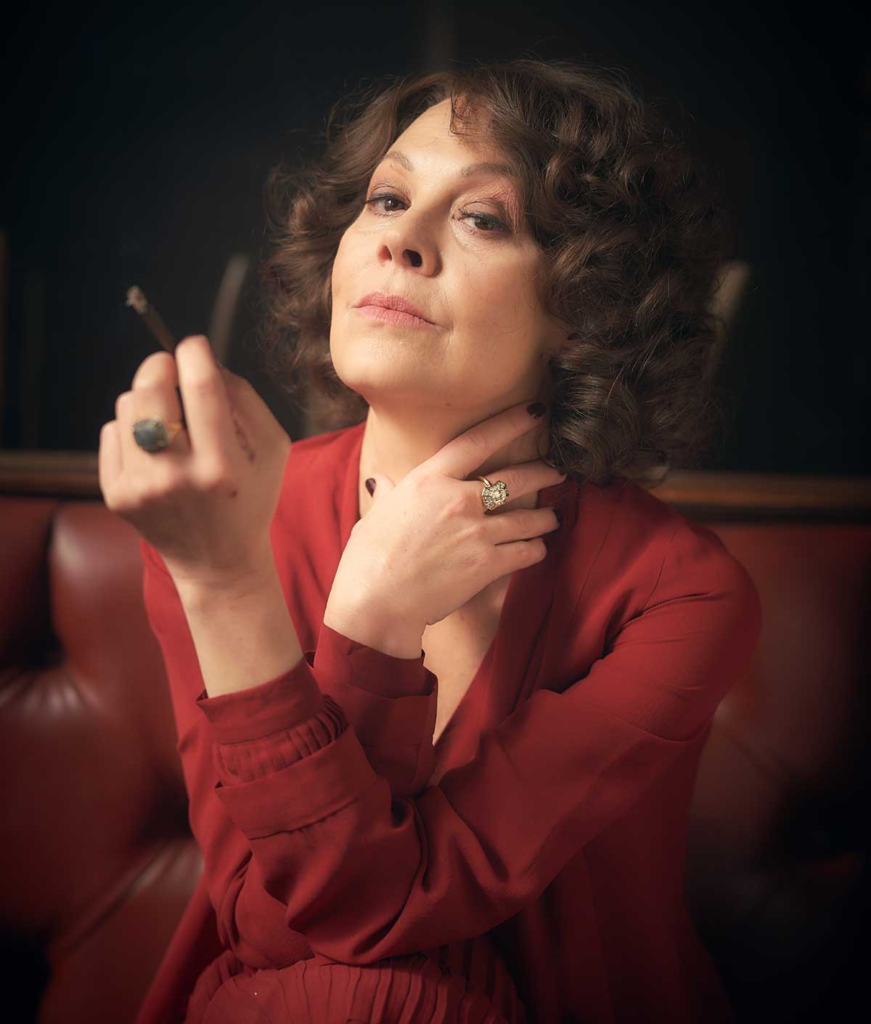
I interviewed Helen McCrory when the fifth season of Peaky Blinders was about to air in 2019. From such a huge star of stage and screen, I expected the familiar ‘luvvy’ personality and being called ‘darling’ interspersed with quotes from Shakespeare, but Helen was the complete opposite. When asked whether we had accurately described the type of cigarettes she smoked in character as Aunt Polly, she waved her hand airily and said, “Oh, who cares? Let’s not let the facts get in the way of a good story.”
It was mid summer when we met, just after the screening of the first episode of the new series of Peaky Blinders, and Helen was intrigued by my outfit, an admittedly hurriedly assembled linen ensemble. She glanced up and down the outfit and simply said, “That’s not really working, is it?”
This led into my first question, about the styling of the female characters on Peaky Blinders.
I’ve talked to your co-star Paul Anderson and creator Steven Knight about the men’s styling of Peaky Blinders. What was your experience in the costume department? Did you have any say in what you wear as Aunt Polly?
I’m a real pain in the neck when it comes to costume, because it’s really important to me. I’ve always really designed what I’ve been wearing alongside the designer, because it makes an enormous difference to how you move, how you’re perceived and how you feel. So right from the beginning when we started Peaky, I wanted Polly to have a very tight silhouette, so they were saying, ‘This is the period, it’s drop-waist…’ and I said, yeah, I’m not wearing that. We need a corset and a hobble skirt and boots up to the thigh, and everything a size too small, tailored within an inch of its life. We need massive hair, with pins I’m going to stab people with, things I can whip out of fur, I need a gun on the inside thigh in a garter. It should all make me feel a certain way.
For the last few years we’ve worked with Alison McCosh, who sources costumes from museums, costume houses, places people don’t usually use. She’ll go as far as Washington, Barcelona or Rome to find the right piece; she’s as obsessive as I am. So before we even start filming, we’ll have entire outfits, complete with shoes, gloves, earrings, hats, for the entire season. Polly definitely wears her clothes as armour and is comfortable in her own skin.
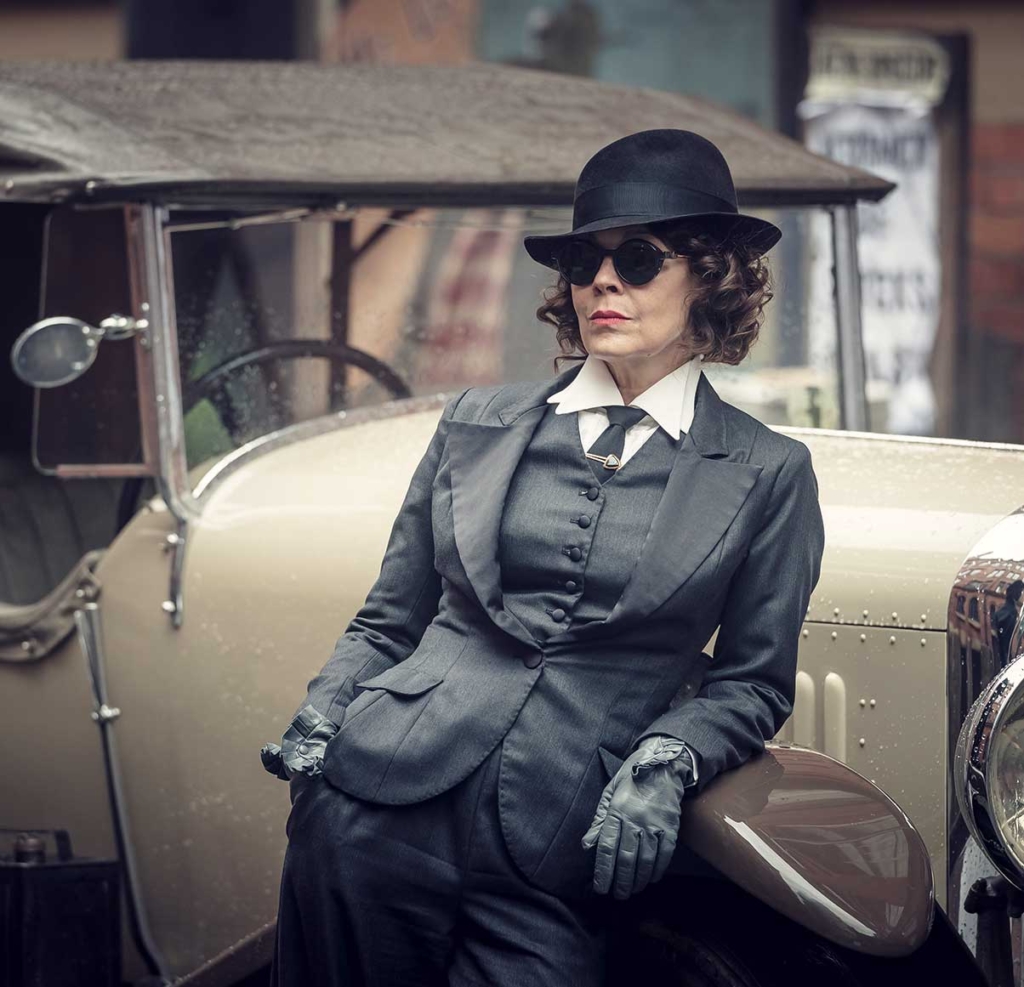
What can we expect sartorially in season 5? I saw some stills and you looked a bit more masculine than usual, in a sexy Marlene Dietrich sort of way.
I really like the masculinity that Polly has. We couldn’t do the hobble skirt again, because a woman wears what she’s comfortable in and then you’ve got to move it on. Those were exactly the references we were looking at, Marlene Dietrich, even Katherine Hepburn, which is slightly later, but pulling that feeling of Polly still smelling of Gitanes, but now it’s Gitanes with a splash of eau de cologne.
Your first acting credit, at least that I could find, was as “second whore” in 1994’s Interview with the Vampire. You then went on to play, among others, The Countess of Castlemaine, Victoria Frankenstein, Evelyn Poole, Medea and Polly Gray. Would you admit there’s a bit of a theme there?
When I first left drama school I only wanted to do theatre, I wasn’t interested in doing screen work whatsoever. It took a long time for my agent to persuade me. As well as the ones you mention, I’ve done my prudes, my purists, my lawyers, the shy giggling one with glasses in Lucky Jim. I’ve always been interested in transforming. I think there are two types of actors: the ones who play themselves, like Clint Eastwood, and the ones who transform into someone else. I’m definitely in the latter category.
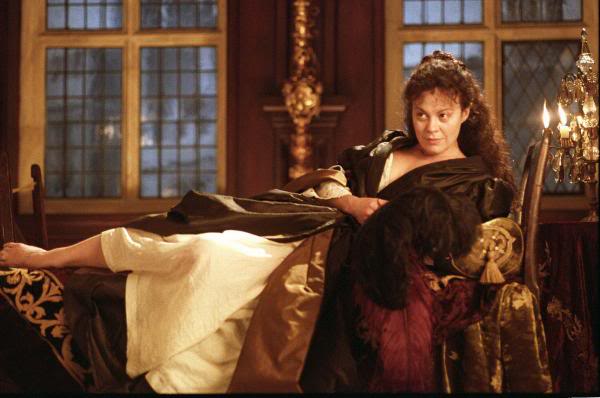
Are you particularly drawn to those roles that express a darker side of human nature?
I don’t think I’ve ever been interested in any play about the happy, successful, lighter moments of life. I think that’s a very modern, pervasive idea in our entertainment, whether it’s on Instagram or in fiction, to show only the good and the perfect side of yourself. It’s just a lie and it’s very dull, and it’s nothing that anyone should even strive for. Obviously when you’re younger, all the dark side of life holds a lot of interest. Every teenager listens to the Doors and reads Sartre.
Is it harder for a woman to make such roles as likeable as their male counterparts? Everyone loves a rake like Lord Byron or Casanova, but are audiences less comfortable with female characters who occupy the darker end of the moral compass?
It’s never occurred to me that they wouldn’t be likeable. I grew up in a house and a world where it was never explained to me that things were off-limits because I was a woman. When I read my feminist literature like Germaine Greer or The Golden Notebook, they were fascinating, but as alien to me as reading Terese Raquin or The Idiot. It was all fiction to me. Polly is very in touch with her instincts and spirituality. I never really feel it’s my job to worry about how the character might be perceived. My job is to be an advocate for the character. How it’s received is your business.
How much backstory for the character were you given at the start of Peaky Blinders?
When I first talked to Steve [Knight, series writer and creator] I said ‘Aunt Polly? Where’s the aunt?’ And he said, you know those women who were just around and they were your ‘aunt’ or your ‘uncle, but they weren’t really your aunt or your uncle. What they were was someone who your parents were saying, this person is special. ‘Get your feet off the table and sit up, because Aunt Polly’s coming over.’

Unless I’ve missed an episode, it’s never explained what happened to the Shelby’s mother.
It’s never been explained. We haven’t really talked about the father of Polly’s children. What’s confusing for me as an actor is that sometimes I have talked about something from the past, but it’s been cut from the final series. So I’ve got it as a memory and I’m not even sure which facts have been broadcast. After five years it all gets a bit blurred.
You’ve played Polly Gray for six years now. Have you formed a deeper bond with her than with roles you’ve only played in one film? Do you ever think about her between seasons of Peaky Blinders?
Yes, you definitely start having a relationship. The writer’s given you all that space and time to build all the facts of those characters. With each new season, no-one’s more excited to learn what’s going to happen than we are. In the last season there were a few scenes where I talked about my lost daughter. I was going around bric-a-brac shops and I found a tiny little engraved doll, circa 1890s. So I kept her in my purse for the next season, even though the audience never saw her. I’ll pick up hatpins, and then ask to have them put in parts of my costume.
So when you pick these things up in antique shops, you’re actually buying them as Polly?
Anything that can help your imagination or add layers helps develop the character. I’m aware that a lot of the things that I talk about as Polly, I haven’t experienced. I haven’t had to give up my children for adoption; I haven’t lost a daughter. But I can’t tell you how often I’ve received letters, or people come up to me in the street, and women tell me these extraordinary stories, and what they felt when they saw Polly talk about it. I’ve even had young girls come up to me and talk about terrible rape stories… one girl came up to me and said that when she saw that episode, it was the first time that she then talked to her husband about it. That’s a huge response, because viewers have watched these characters for a long time, so I’m very aware of that responsibility. And I’m so aware that when you play these parts and play those moments, there is a triangle of ghosts behind you, of people that have never told their stories. When you speak to them, you have to immerse yourself into it as much as possible, because you’ve got to get it right.
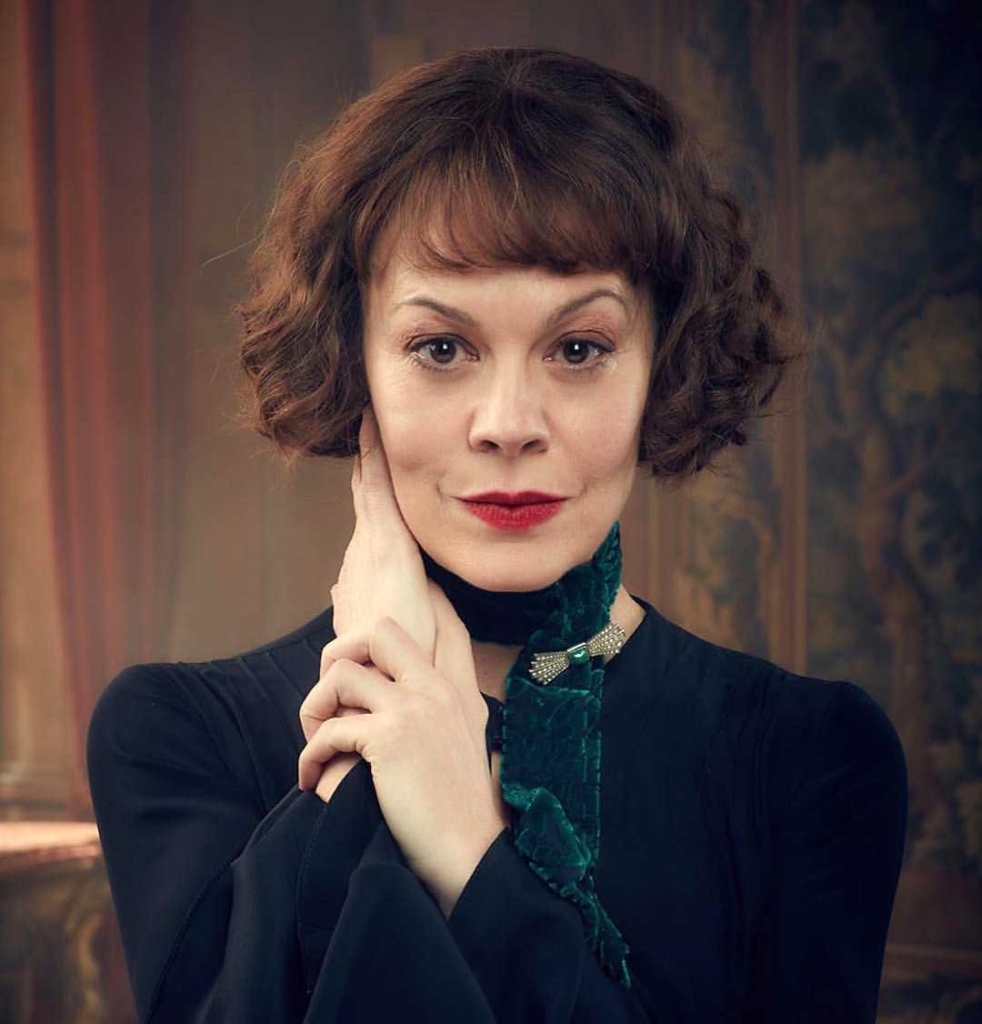
The appeal of Polly is that she’s so rounded and complex, like when we see her taking opium and nearly falling apart, but then she keeps all the books in order for the whole Shelby business empire. That’s quite an unusual combination, isn’t it?
It is for television, but it isn’t an unusual combination for life. Most people are just struggling and trying to keep it together. What I love about Polly is that she just keeps going, which is what a lot of women do, putting everybody first and themselves second. Polly does it again and again and again, and copes with it by taking drugs or drinking, seeing someone on the street corner who tells her where her daughter is, then finding out it’s a lie, and the hurt of that. That struggle of life and just keeping everything going is a very British outlook. There are a lot of Pollys out there.
Do you think she would really have existed in that period, as you’ve portrayed her, or are some of her characteristics more true of women today?
My grandma’s father was killed in the war. She was brought up by a cleaning lady who cleaned pubs in Glasgow, and those women did everything the men were supposed to do, because there were no men there. Entire generations of families who lost the men in the first and second world wars. So those women like Polly absolutely existed. So there’s nothing modern about women holding it together, and striding down the street. We know that the police were called to Small Heath more often for fights between women than between men.
If your washing on a Friday wasn’t done, or if you weren’t one of the women who were up in the morning to get the clean water and put the family’s clothes on the mangle, it would reflect on your family. Women just worked so hard, and they had balls. There was a tiny minority, from the ruling classes, that were feminine in a way that maybe doesn’t exist any more. But as far as being a streetwise alleycat and being tough and facing it, I see those girls all the time, every time I get on a tube at 2am I think, there’s another little Polly sitting over there.
People have compared Peaky Blinders to both westerns and Hollywood gangster movies.
What I like about Stephen’s writing is that Polly doesn’t ever see herself as a victim, even when the most appalling things have happened to her, and that is a state of mind which is inspirational. No-one can be in control of what happens around them in their life; the only thing you can control is how you see it. Nothing is good nor bad but thinking makes it so, as Shakespeare said. What Polly decides is that it’s Polly’s world.
Steve doesn’t write this working class background, which is the background I came from. My father worked on the Glasgow docks, his father was a steel worker. My mum’s dad was a boxer who came from a mining family… in other words, like most of the country. Whenever you saw them on British television, in films like Kes, it was looking at our wounds, and licking them. What’s wonderful about Steve is he’s reclaimed them and made people proud about their history, as well as looking at the darker elements. In Season Five we’re going to see the rise of fascism, and the fall of the stock market, that thundercloud that comes over Europe that we are so aware of today. But in Peaky Blinders, nobody is lying on their back and saying ‘Poor me’.
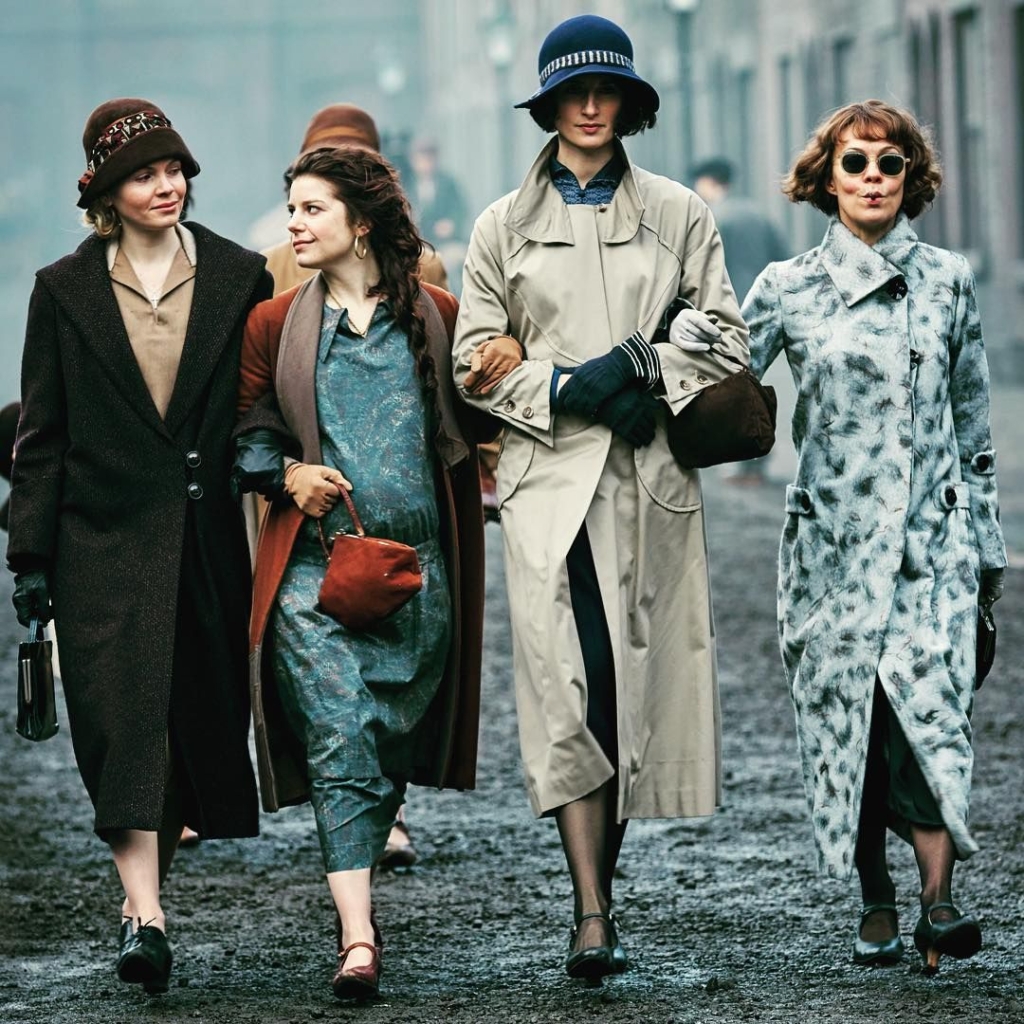
So Aunt Polly is a really good example to set people, in an age when everybody loves to play the victim?
Yeah. You might not feel that way, but just stride down the street, because you know what, it’ll make your day better, if nothing else, just for the badness and the fun of it. People say about Peaky Blinders that it’s very violent and very gory, and I say, well that is what violence is, you should want to look away. It’s disgusting. It’s what happens when people think they’ve run out of any other option. It’s actually the women around the violent men who are strong.
Peaky Blinders seems to be a more realistic updating of the 1970s gangster movie portrayal of women either as prostitutes or downtrodden wives.
Yes, with Polly, Steve has given the responsibility of the family to Polly and Tommy; he hasn’t given it to Tommy and Mrs Tommy. It’s not even a sexual relationship; they’re just the two people who run the gang. He’s the paternal and she’s the maternal, as archetypes.
And there are parallels between them, in the way they both seek solace in opium when they go off the rails. It isn’t a typical fictional relationship.
Yes, you usually have the male character in a turmoil of sexual angst and drugs, and the woman at home saying, I hope he’ll be alright. Rather than her doing exactly the same, and struggling as well.
RIP Helen Elizabeth McCrory, 17th August 1968-16th April 2021

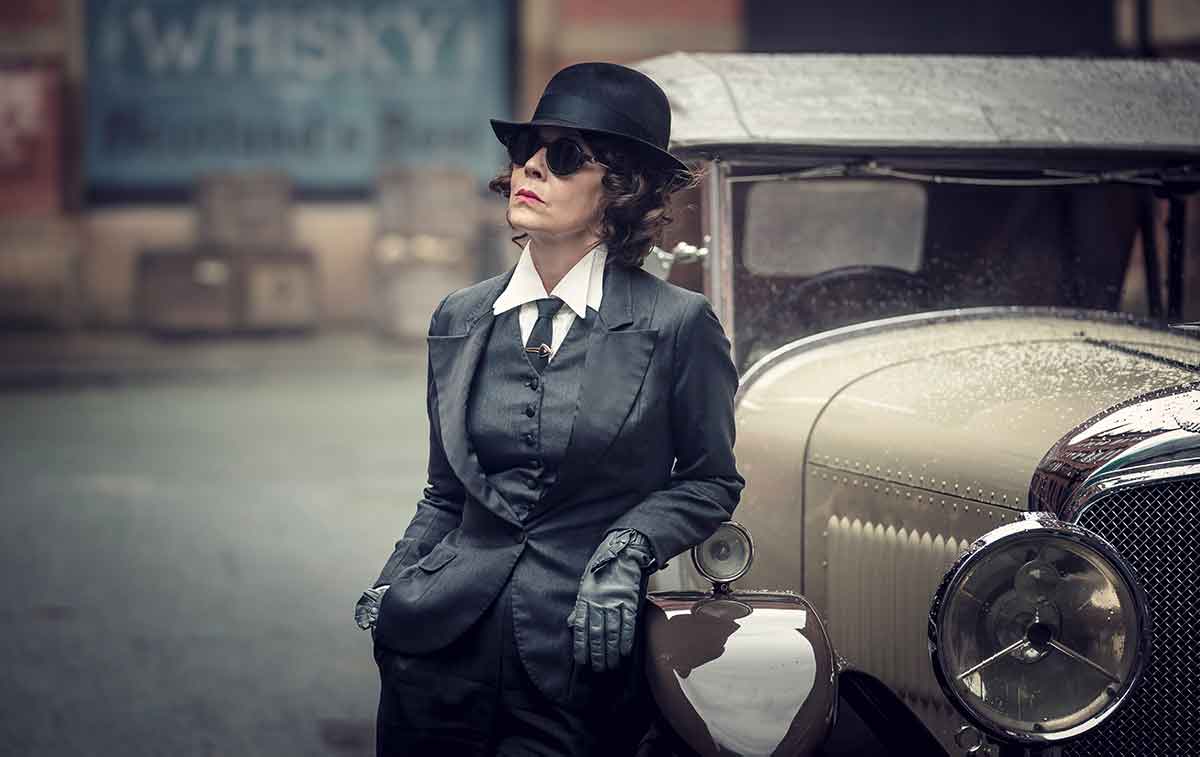
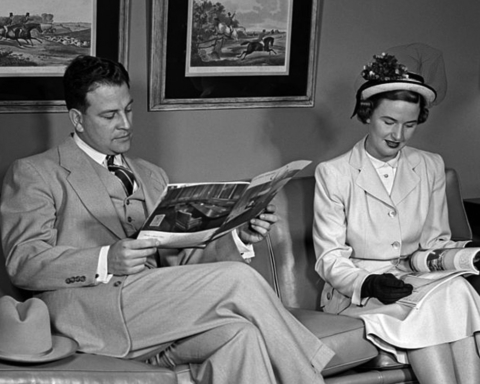
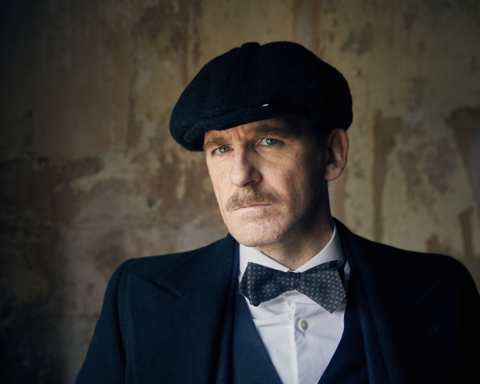
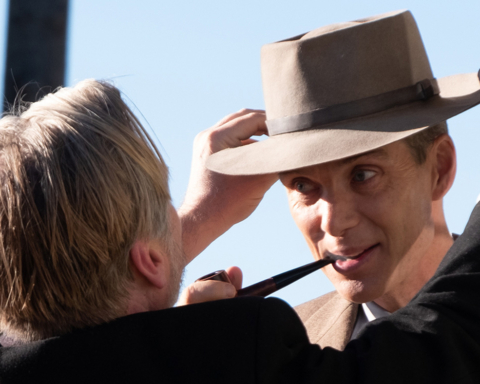
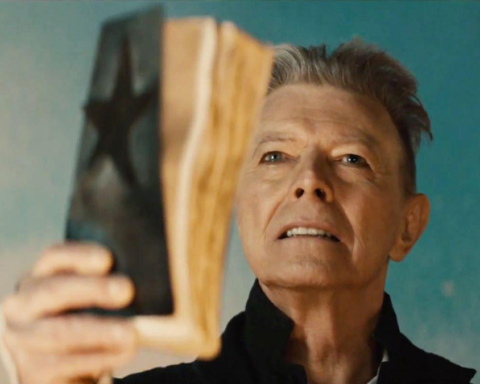

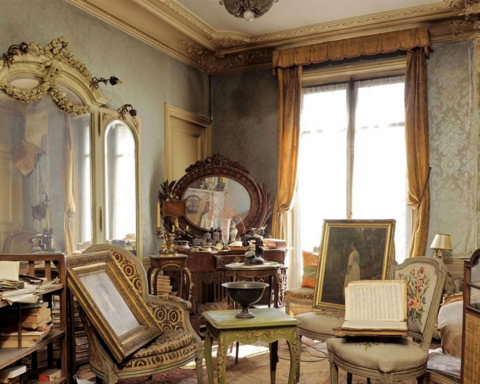
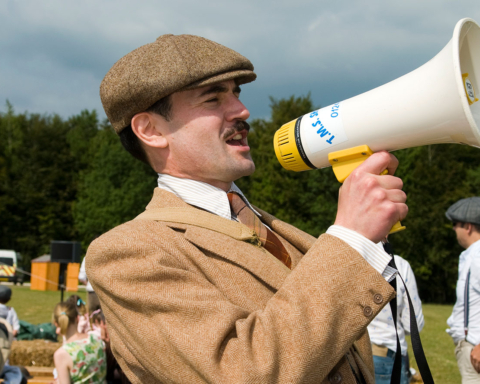
[…] Meet Helen McCrory (Polly Shelby) in an exclusive interview […]